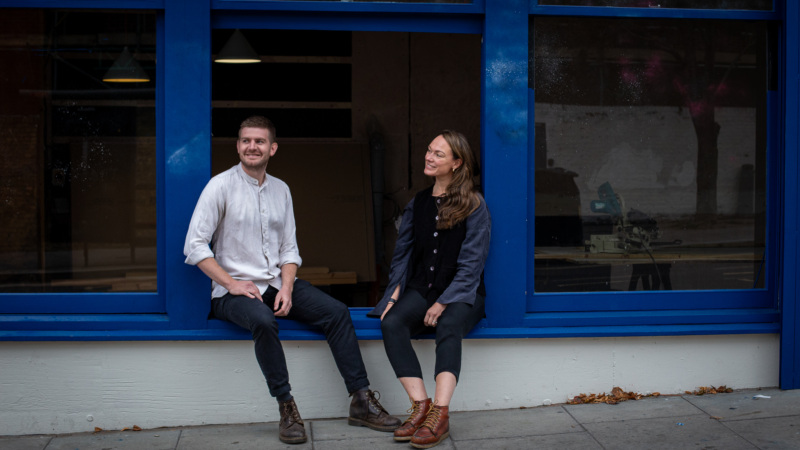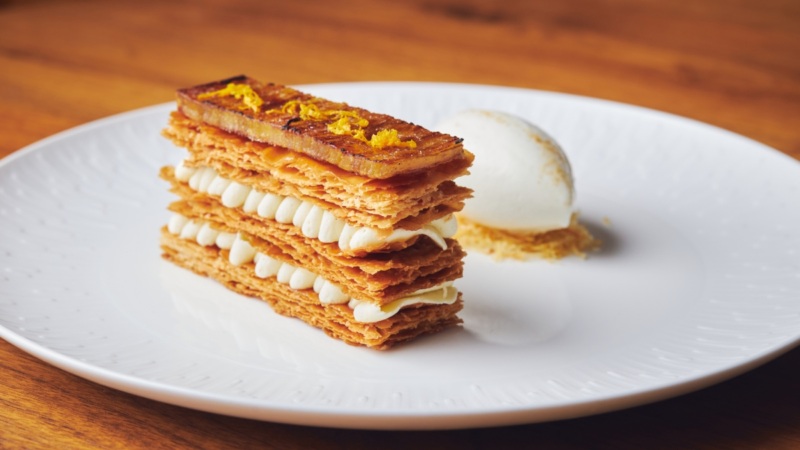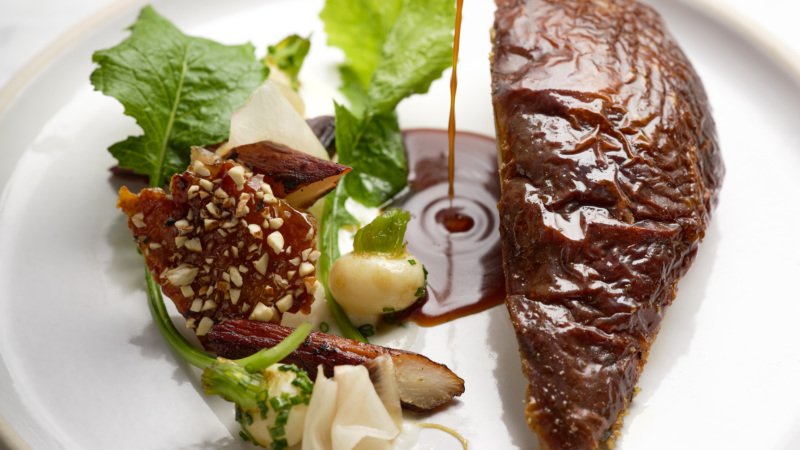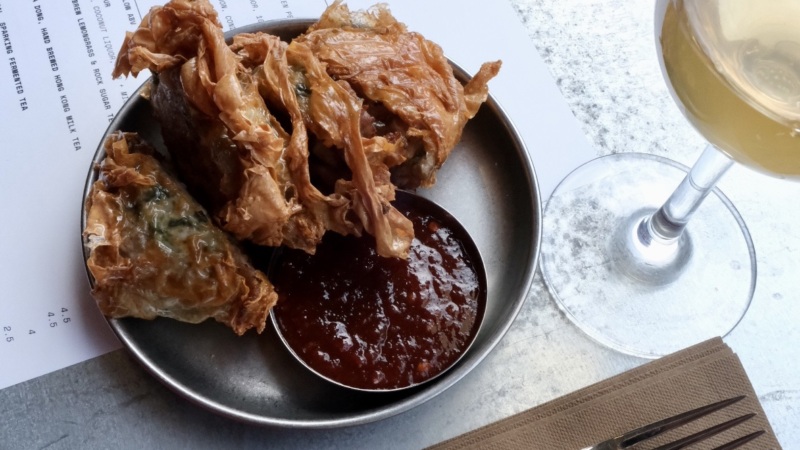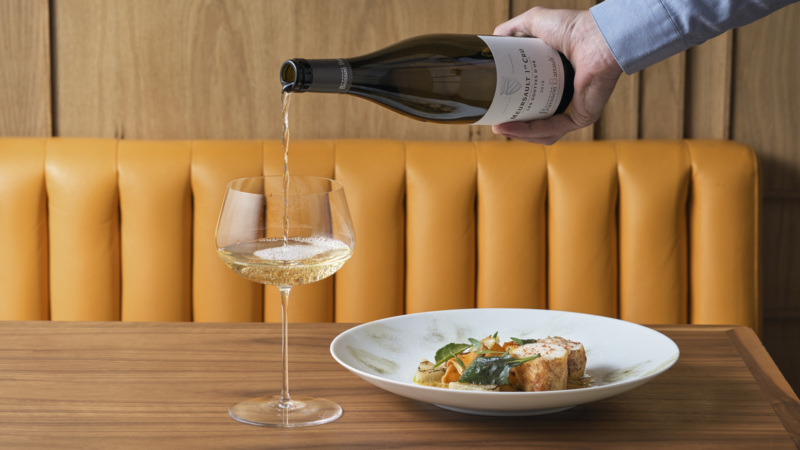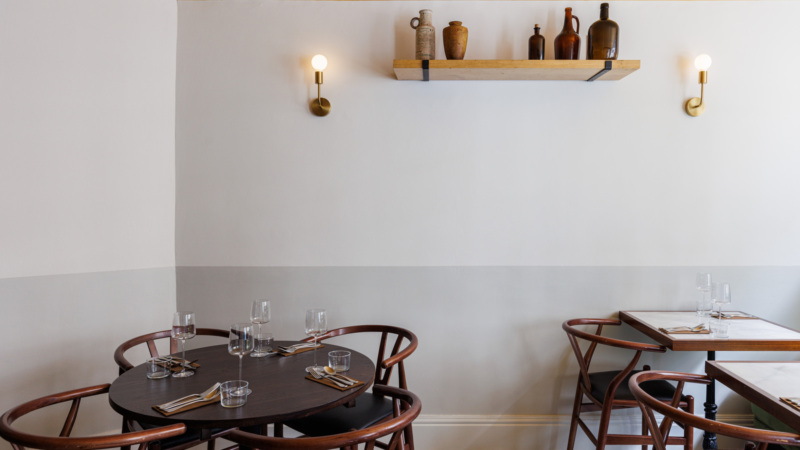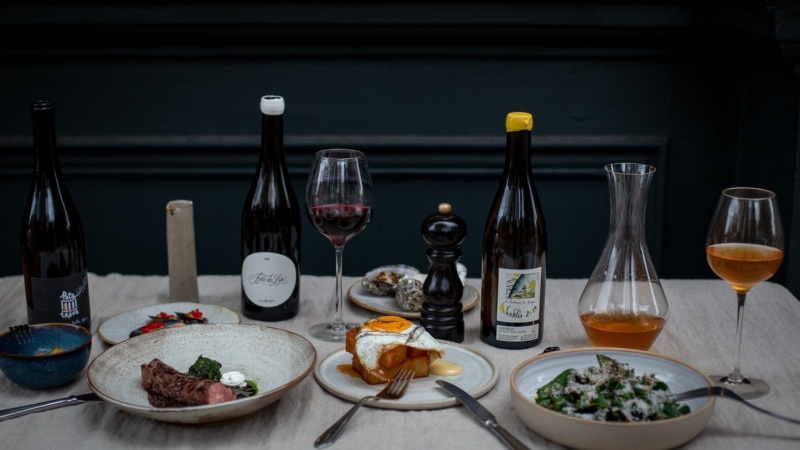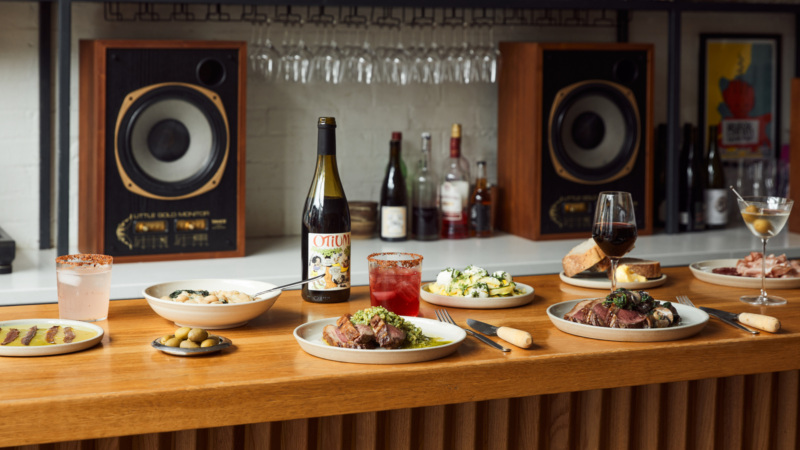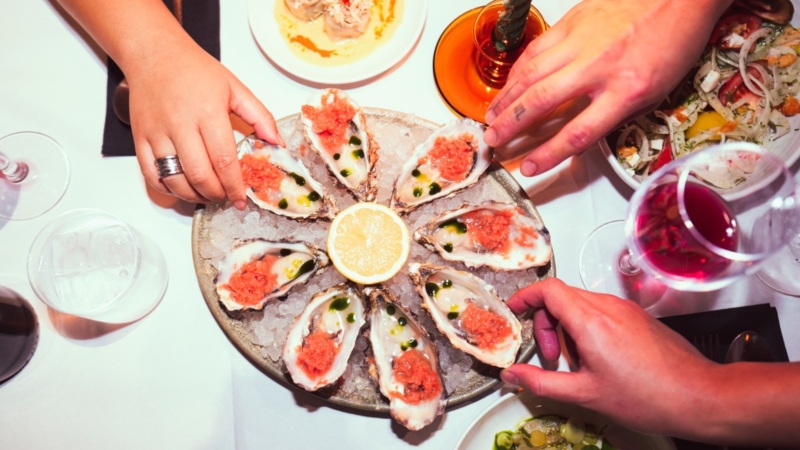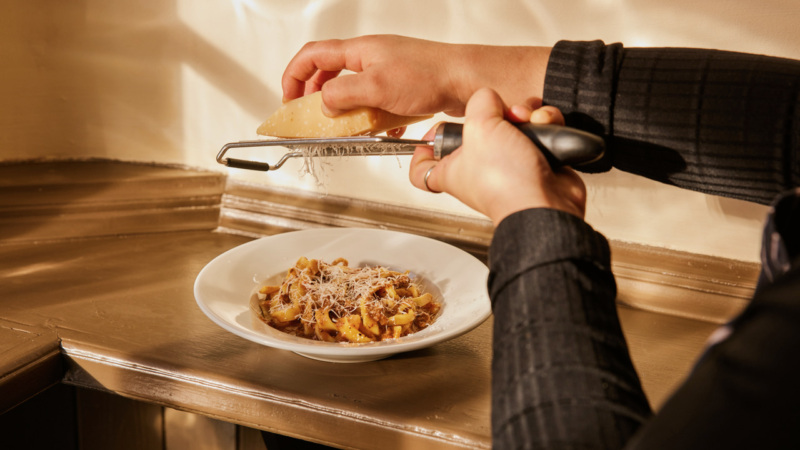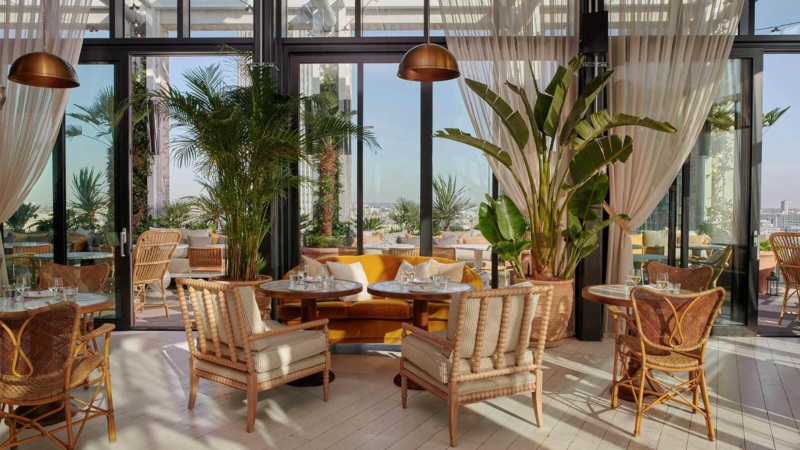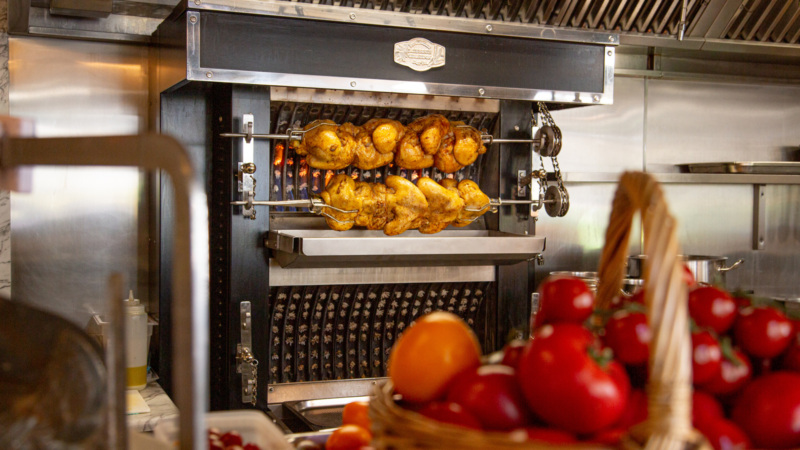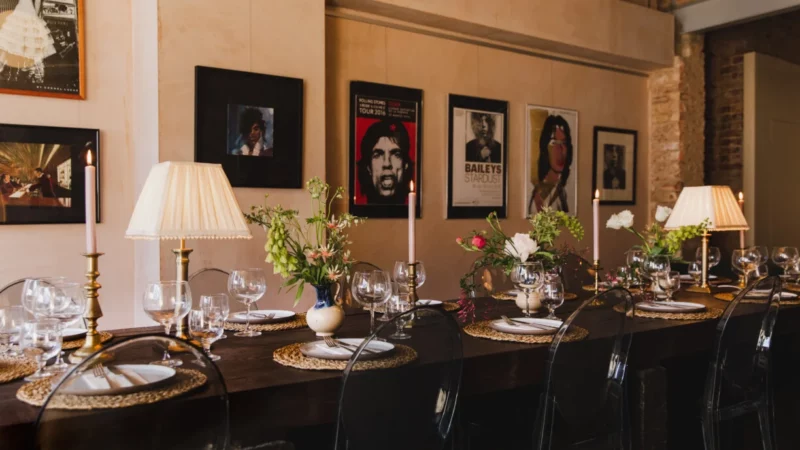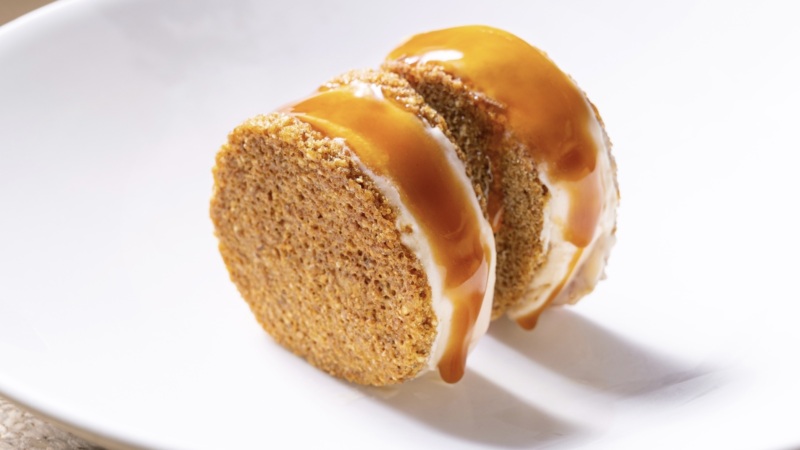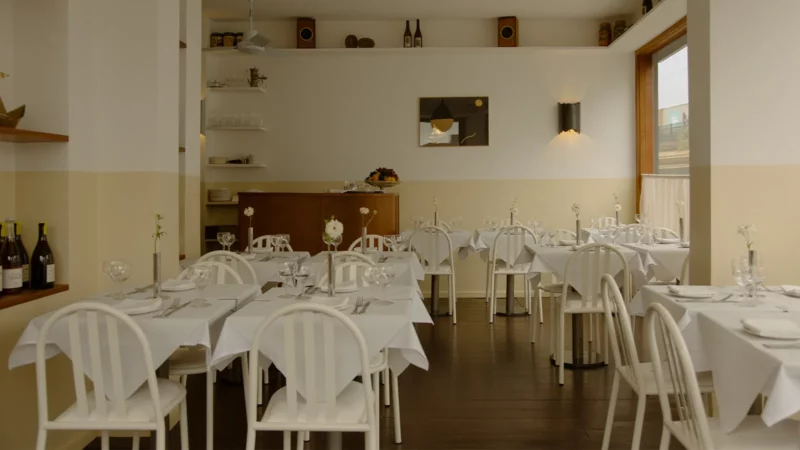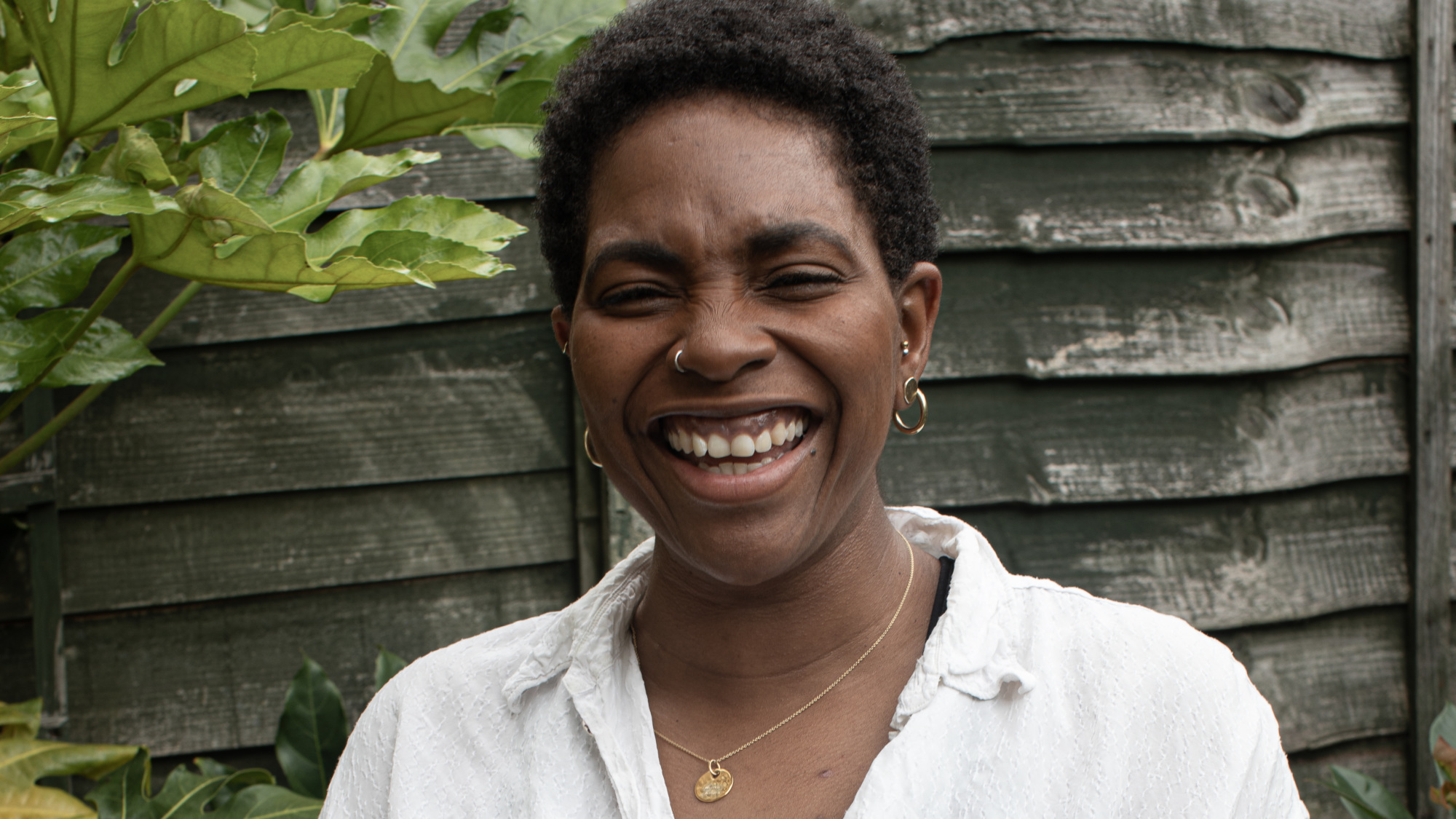
Marie Mitchell, Chef and Co-Founder of Island Social Club
Marie Mitchell finds peace in food. The meditative stirring of a pot, the rhythmic chopping of ingredients, the exhilaration of feeding.
It was evident in the joy people experienced at Island Social Club, the innovative dining pop-up she co-founded that served food and rum from across the Caribbean. It’s evident in the dozens of roti she hand-rolled for a recent line of sold-out meal kits. It’s clear in how she talks about food.
But there was a time in the last two years when even food couldn’t pull Marie out of the depths. Just days after giving birth to her daughter Marcie, her “beautiful” mum Barbara died. She had contracted Covid, which exacerbated her longstanding lupus and sickle cell anaemia, and her death devastated Marie and her dad Earle, who had known his wife since childhood.
“Mum had been desperate for grandchildren for years,” says Marie, “and it’s particularly cruel that she lost her son at 29, and then dies days before her granddaughter was born,” she says. “She was desperate for a girl and she got her wish. But she didn’t even get to enjoy that.”
At the time, Marie also had Covid, and struggled through her symptoms, at times having to fight to breathe.
Now, there is a lightness about Marie that belies the pain. In their north London home, Marcie – named after Barbara’s middle name, Marcia, clambers over Marie. There’s a beautiful tenderness between them, and to see their bond makes Marie’s loss even more apparent. “If you have a close relationship with a parent, specifically your mum, becoming a parent without having her there is…”
Marie’s voice breaks.
“I think I’ve been suppressing the fact that I’m really fucking angry because there’s still no accountability. So many people’s lives have been ripped apart.”
Has she been able to grieve?
“Not massively. It’s been hitting more recently, but it took me a while…”
Eventually, grief found a connection with food in Marie’s life, just as joy has.
Her older brother Richard contracted meningitis aged 14, and although he survived, he was left with an auto-immune condition that led to his kidneys failing. He received two donor organs, one at 18 and the next aged 21. Then, Marie was able to donate a kidney. It gave him three brilliant years, but devastatingly, he died in 2010, aged 29. His death hit the family like a rocket. “I blamed myself for my brother’s death for many years,” Marie says. “I gave him a kidney when I was 20 and, in my mind, I believed it had failed. Actually, the kidney was fine, but I internalised it.”
“That’s not what I’ve done with mum but in my head, because I had Covid too, I felt as if I was distracted. I wasn’t able to see she was really ill or do anything.”
“I just wish I could’ve saved her. She died like an animal – Dad was begging for them to resuscitate her.”
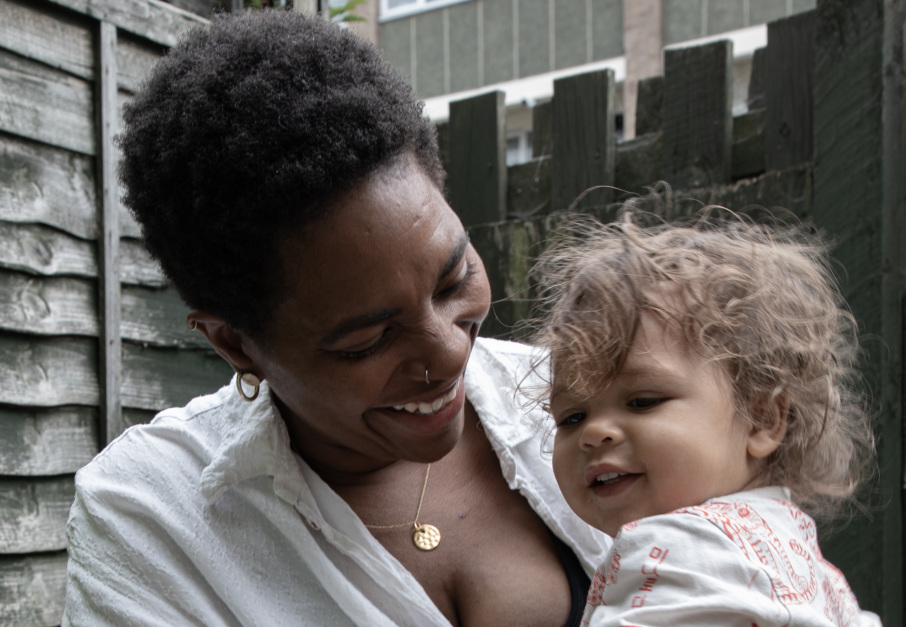
Pop’s Kitchen, Marie’s first pop-up, started in part because of Richard’s death. It was a driver, a “catalyst for me to live a life I don’t think I would have if that hadn’t happened,” she has said previously.
The pop-up was a family affair – Barbara hosted, while Earle helped in the kitchen. And for Marie, cooking the food of her heritage helped her to connect with her roots. Both parents were from Jamaica, though as a child, Marie – a “fussy eater” – wasn’t a fan of island food, apart from dumpling and plantain. “There’d be fried fish with escovitch and I’d never go near it. I found it disgusting,” she laughs.
She loved baking with her nan, and then at university in Bournemouth, she started cooking more, and becoming more experimental. A turning point was her and her mum cooking stew chicken with rice & peas.
It was at her house in Bournemouth that she developed a taste for feeding others, “in a little conservatory eating my food with my friends”.
The following year after starting Pop’s Kitchen in 2015, she met Joe Pilgrim who was running a rum pop-up and they joined forces to become Island Social Club.
“Caribbean food has always been there but in the periphery. It’s not really had its moment, and it’s only recently coming into the mainstream.”
Island Social Club made waves, offering delicious Caribbean food in a setting that wasn’t a takeaway. It bridged a gap but faced the same challenges Black-owned eateries face across the country, including struggling to get funding and battling an expectation that the food should be cheaper.
“Caribbean food has always been there but in the periphery,” she says. “It’s not really had its moment, and it’s only recently coming into the mainstream.”
“Food is something we have in common. We all need it for survival and breaking bread together is a beautiful way to have conversation,” she continues. “That’s why our supper clubs were popular – because there’s a communality, a way to engage and maybe break down barriers. Especially if we’re talking about cultural foods that people might not have had much exposure to. It’s a nice way to segway into further conversation that doesn’t feel forced. People can be more receptive within those spaces. There’s this safety there, you can open up.”
“[Island Social Club] bridged that gap between formal fine dining and not a takeaway. Some people would say they could get the same food cheaper down the road, but you’ll always get some. It was just a place you go with your mates and have really good food, and I miss it because we still don’t really have that.”
Though Island Social Club is on pause, last year Marie signed a two-book deal for KIN, which will be an extension of the same ideals she founded her pop-up with – exploring the connection between the Caribbean islands and their diaspora, and celebrating the region’s food, culture, and history.
Writing it has been difficult, with the pressures of new parenthood while also grieving. Now, not only is it a record of food in the Caribbean and the importance of connection, but also a tribute of sorts to her family. “There are a lot of memories in it. There was always a family element but now the fact Mum and Richard are not here, it’s even more important.”
For now, Marie’s reacquainting herself with cooking, rebuilding that relationship that has been so central to her adult life. Now, there’s a new focus.
“I cooked loads during lockdown. I loved it. Before with Island Social Club, I wouldn’t cook much at home. So, lockdown was initially lovely. I got to see Danny loads. I was experimenting, having a really fun time.”
“Cooking is my therapy. I get a bit lost in it, especially if I can labour over it. Nothing makes me happier than when people eat my food.”
Melissa Thompson is a London-based food and drink writer. Follow her on Instagram and Twitter. Follow Resy, too.

